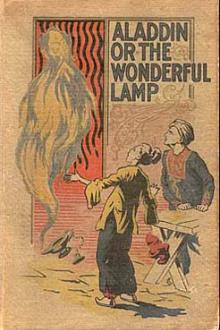The Yellow Claw by Sax Rohmer (best short novels txt) 📗

- Author: Sax Rohmer
Book online «The Yellow Claw by Sax Rohmer (best short novels txt) 📗». Author Sax Rohmer
“Will it be sent to me?”
“My dear fellow! How absurd you are! Can you get out to-morrow evening about nine o'clock?”
“Yes, easily.”
“Then I will meet you at the corner of Victoria Street, by the hotel, and hand you your first quarter's salary. Will that be satisfactory?”
“Perfectly,” said Soames, his small eyes sparkling with avarice. “Most decidedly, Mr. Gianapolis. Many thanks.”...
“And by the way,” continued the other, “it is rather fortunate that you rang me up this evening, because it has saved me the trouble of ringing you up.”
“What?”—Soames' eyes half closed, from the bottom lids upwards:—“there is something”...
“There is a trifling service which I require of you—yes, my dear Soames.”
“Is it?”...
“We will discuss the matter to-morrow evening. Oh! it is a mere trifle. So good-by for the present.”
Soames, with the fingers of his two hands interlocked before him, and his thumbs twirling rapidly around one another, stood in the lobby, gazing reflectively at the rug-strewn floor. He was working out in his mind how handsomely this first payment would show up on the welcome side of his passbook. Truly, he was fortunate in having met the generous Gianapolis....
He thought of a trifling indiscretion committed at the expense of one Mr. Mapleson, and of the wine-bill of Colonel Hewett; and he thought of the apparently clairvoyant knowledge of the Greek. A cloud momentarily came between his perceptive and the rosy horizon.
But nearer to the foreground of the mental picture, uprose a left-hand page of his pass book; and its tidings of great joy, written in clerkly hand, served to dispel the cloud.
Soames sighed in gentle rapture, and, soft-footed, passed into his own room.
Certainly his duties were neither difficult nor unpleasant. The mistress of the house lived apparently in a hazy dream-world of her own, and Mr. Leroux was the ultimate expression of the non-commercial. Mr. Soames could have robbed him every day had he desired to do so; but he had refrained from availing himself even of those perquisites which he considered justly his; for it was evident, to his limited intelligence, that greater profit was to be gained by establishing himself in this household than by weeding-out five shillings here, and half-a-sovereign there, at the risk of untimely dismissal.
Yet—it was a struggle! All Mr. Soames' commercial instincts were up in arms against this voice of a greater avarice which counseled abstention. For instance: he could have added half-a-sovereign a week to his earnings by means of a simple arrangement with the local wine merchant. Leroux's cigars he could have sold by the hundreds; for Leroux, when a friend called, would absently open a new box, entirely forgetful of the fact that a box from which but two—or at most three—cigars had been taken, lay already on the bureau.
Mr. Soames, in order to put his theories to the test, had temporarily abstracted half-a-dozen such boxes from the study and the dining-room and had hidden them. Leroux, finding, as he supposed, that he was out of cigars, had simply ordered Soames to get him some more.
“Er—about a dozen boxes—er—Soames,” he had said; “of the same sort!”
Was ever a man of business submitted to such an ordeal? After receiving those instructions, Soames had sat for close upon an hour in his own room, contemplating the six broken boxes, containing in all some five hundred and ninety cigars; but the voice within prevailed; he must court no chance of losing his situation; therefore, he “discovered” these six boxes in a cupboard—much to Henry Leroux's surprise!
Then, Leroux regularly sent him to the Charing Cross branch of the London County and Suburban Bank with open checks! Sometimes, he would be sent to pay in, at other times to withdraw; the amounts involved varying from one guinea to 150 pounds! But, as he told himself, on almost every occasion that he went to Leroux's bank, he was deliberately throwing money away, deliberately closing his eyes to the good fortune which this careless and gullible man cast in his path. He observed a scrupulous honesty in all these dealings, with the result that the bank manager came to regard him as a valuable and trustworthy servant, and said as much to the assistant manager, expressing his wonder that Leroux—whose account occasioned the bank more anxiety, and gave it more work, than that of any other two depositors—had at last engaged a man who would keep his business affairs in order!
And these were but a few of the golden apples which Mr. Soames permitted to slip through his fingers, so steadfast was he in his belief that Gianapolis would be as good as his word, and make his fortune.
Leroux employed no secretary; and his MSS. were typed at his agent's office. A most slovenly man in all things, and in business matters especially, he was the despair, not only of his banker, but of his broker; he was a man who, in professional parlance, “deserved to be robbed.” It is improbable that he had any but the haziest ideas, at any particular time, respecting the state of his bank balance and investments. He detested the writing of business letters, and was always at great pains to avoid anything in the nature of a commercial rendezvous. He would sign any document which his lawyer or his broker cared to send him, with simple, unquestioned faith.
His bank he never visited, and his appearance was entirely unfamiliar to the staff. True, the manager knew him slightly, having had two interviews with him: one when the account was opened, and the second when Leroux introduced his solicitor and broker—in order that in the future he might not be troubled in any way with business affairs.
Mr. Soames perceived more and more clearly that the mild deception projected was unlikely to be discovered by its victim; and, at the appointed time, he hastened to the corner of Victoria Street, to his appointment with Gianapolis. The latter was prompt, for Soames perceived his radiant smile afar off.
The saloon bar of the Red Lion was affably proposed by Mr. Gianapolis as a suitable spot to discuss the business. Soames agreed, not without certain inward qualms; for the proximity of the hostelry to New Scotland Yard was a disquieting circumstance.
However, since Gianapolis affected to treat their negotiations in the light of perfectly legitimate business, he put up no protest, and presently found himself seated in a very cozy corner of the saloon bar, with a glass of whisky-and-soda on a little table before him, bubbling in a manner which rendered it an agreeable and refreshing sight in the eyes of Mr. Soames.
“You know,” said Gianapolis, the gaze of his left eye bisecting that of his right in a most bewildering manner, “they call this 'the 'tec's tabernacle!'”
“Indeed,” said Soames, without enthusiasm; “I suppose some of the Scotland Yard men do drop in now and then?”
“Beyond doubt, my dear Soames.”





Comments (0)